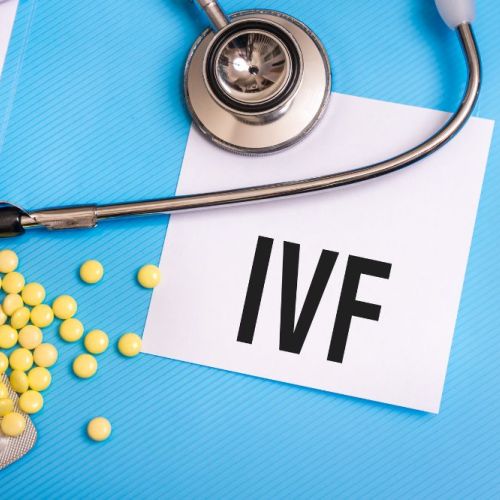Which Fertility Treatment is Most Effective?

The inability to get pregnant can be frustrating and stressful. The good news is that there are more options for treating infertility than ever before using assisted reproductive technology (ART). Options in fertility treatment include medication, surgery, and lifestyle changes. The team at the Center for Reproductive Health provides guidance and support throughout the process of seeking a solution to infertility challenges. So, which fertility treatment is most effective?
Diagnosing the Cause of Infertility
Before recommending options in fertility treatments, it’s important to look into the cause. When a couple is struggling to get pregnant, the cause could be female, male, or the couple together. The first step is a comprehensive evaluation which includes a physical exam, medical history, and bloodwork to identify hormone abnormalities. The health and motility of the sperm are analyzed as well as the health of the uterus and fallopian tubes.
In Vitro Fertilization (IVF)
If no issues are found with the sperm or the female reproductive system, the most effective fertility treatment is often in vitro fertilization (IVF), which is the fertilization of the egg and sperm outside the body. Before trying IVF, some women respond to taking oral medication that’s prescribed to stimulate ovulation and are able to get pregnant just from taking this medication. A more effective form of fertility treatment is to combine fertility medication with IVF.
Fertility treatment with IVF may be an option for couples with a variety of challenges such as:
– Uterine fibroids
– Polycystic ovary syndrome
– Endometriosis
– Low sperm count
– Blocked fallopian tubes
If IVF is determined to be the best option, injectable hormones are given to induce several eggs to grow. An outpatient procedure is done under anesthesia to remove these eggs. IVF can also be done using eggs or embryos from an anonymous donor.
The eggs are fertilized with sperm provided by the patient’s partner or by a sperm donor in a lab environment. Once the eggs have been fertilized, they remain in the lab for a few days and are incubated as they develop into embryos. One or more embryos are then placed back into the woman’s uterus in a short outpatient surgery that doesn’t usually require anesthesia. Embryos that aren’t implanted can be frozen to be used in the future. Pregnancy happens if one or more embryos successfully implant inside the uterus.
How Effective is IVF?
While IVF is the most effective fertility treatment, it doesn’t work for everyone. Some couples are able to successfully attain pregnancy after one cycle of IVF. More than one cycle of IVF may be needed before pregnancy is attained in other couples. Women who are over 40 may have more difficulty attaining pregnancy than younger women, and using donor eggs may help increase the chance of success. Poor lifestyle choices can reduce a woman’s chance of success with IVF. Examples include smoking and excessive use of alcohol and caffeine.
Working closely with the fertility experts at the Center for Reproductive Health is the best way to find out whether you’re a good candidate for IVF or if a different form of fertility treatment would be better for you. Contact us today to schedule an appointment.
Eliran Mor, MD
Reproductive Endocrinologist located in Encino, Santa Monica, Valencia & West Hollywood, CA
FAQ
Reproductive endocrinology and Infertility is a sub-specialty of Obstetrics and Gynecology. In addition to managing medical and surgical treatment of disorders of the female reproductive tract, reproductive endocrinologist and infertility (REI) specialists undergo additional years of training to provide fertility treatments using assisted reproductive technology (ART) such as in vitro fertilization.
Reproductive endocrinologists receive board certification by the American Board of Obstetrics and Gynecology in both Obstetrics and Gynecology and Reproductive Endocrinology and Infertility.
In general, patients should consider consulting with an REI specialist after one year of trying unsuccessfully to achieve pregnancy. The chance of conceiving every month is around 20%, therefore after a full year of trying approximately 15% of couples will still not have achieved a pregnancy.
However, if a woman is over the age of 35 it would be reasonable to see a fertility specialist earlier, typically after 6 months of trying.
Other candidates to seek earlier treatment are women who have irregular menses, endometriosis, fibroids, polycystic ovary syndrome (PCOS), women who have had 2 or more miscarriages, or problems with the fallopian tubes (prior ectopic pregnancy).
Approximately 1/3 of the time cause for infertility is a female factor, 1/3 of the time a male factor, and the remaining 1/3 a couples’ factor.
At CCRH, we emphasize the importance of establishing a correct diagnosis. Both partners undergo a comprehensive evaluation including a medical history and physical exam.
Furthremore, the woman’s ovarian reserve is assessed with a pelvic ultrasound and a hormonal profile. A hysterosalpingogram (HSG) will confirm fallopian tube patency and the uterine cavity is free of intracavitary lesions. A semen analysis is also obtained to evaluate for concentration, motility, and morphology of the sperm.
Additional work up is then individualized to direct the best possible treatment option for each couple.
In vitro fertilization (IVF) is the process that involves fertilization of an egg outside of a woman’s body.
The process starts with fertility drugs prescribed to help stimulate egg development. In your natural cycle, your body is only able to grow one dominant egg, but with stimulation medication we can recruit multiple eggs to continue to grow. After about 8-10 days of stimulation, the eggs are surgically retrieved and then fertilized with sperm in a specialized laboratory. Fertilized eggs are then cultured under a strictly controlled environment within specialized incubators in the IVF laboratory for 3-5 days while they develop as embryos. Finally, embryos (or an embryo) are transferred into the uterine cavity for implantation.
Before deciding if IVF is the right choice, it’s important to sit down with an REI specialist to discuss available treatment options. For some people, other methods such as fertility drugs, intrauterine insemination (IUI) may be the best first choice treatment. At CCRH, we believe each individual couple is unique and not everyone needs IVF.
While not painful, the fertility medications may some side effects including headaches, hot flashes, mood swings, and bloating. The injection sites may also bruise.
Unfortunately, no. Many people think once they start IVF it’s a matter of time that they will be pregnant and have a baby. But according to national statistics per the Society of Assisted Reproduction (SART), on average 40% of assisted reproduction cycles achieve live births in women under age 35. The chances of success then continue to decrease with advancing age.
At CCRH, we employ only evidence-based interventions to ensure patient safety and optimal outcome. While we cannot guarantee a baby, we guarantee that you will receive the best, most advanced, personalized care to help you maximize your chance of a baby.
The average IVF success rate (success measured in live birth rate) using one’s own eggs begins to drop around age 35 and then rapidly after age 40. This is due to the decline in egg quantity and egg quality as a woman ages.
Our clinic’s success rate consistently beats the national average year after year.
Individual insurance plans often do not have any coverage for infertility treatments. If you have a group plan, you can call members services to see if they have coverage for infertility (including consultation/workup and IVF).
After your consultation with our REI specialist, one of our dedicated account managers with sit with you to go over the cost of treatment.




